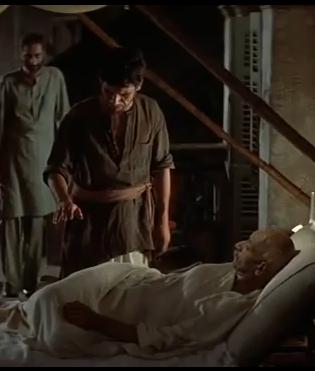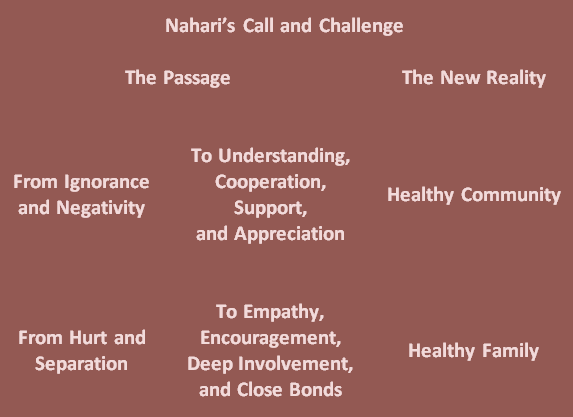
- A new world beckons – can we make the journey together? Photograph by Wikimedia user, Palosirkka, Denali National Park and Preserve, September 8, 2012.
“Love your neighbor as yourself!” But every rule has exceptions! Who is our neighbor anyway? Why must we, with all our good work, love the conservative who stands in the way of our progress? Or why must we, with all our good work, love the liberal who wants to tear down our values? Don’t forget the time when they lied about us and did us wrong! They don’t deserve our respect!
We’re usually not so blunt. We’re smooth talkers, like the lawyer who asked Jesus, “Who is my neighbor?” But the lawyer’s heart was inflamed. He hoped to inflame his audience and maybe even the teacher too. The fiery storm in his heart sought “clarification” about neighbors and enemies.
This stranger, this enemy, has become the neighbor, the hero! Inspired compassion has overcome the status quo of hatred.
Yes, we have diverse guiding visions, but these positive visions in all their diversity are united in urging us to develop and practice virtues and to avoid and eliminate vices.
Like the Good Samaritan, we can move beyond our divisions which have only enslaved us. Like this Good Traveler, we can think first of others and let ourselves become instruments of divine healing. Like this Good Farbor, we can embrace life in many beautiful ways:
- I will strive today to SHARE THE GIFT OF CREATION with all living beings and people.
- I will strive today to EXPERIENCE THE WONDER OF BEING A HUMAN BEING embracing the astonishing diversity of life, persons, cultures, and places on our wondrous Earth.
- I will strive today to PUT INTO DEEDS MY GUIDING VISION.
- I will strive today to SEEK THE GENIUS AND INSPIRATION IN OTHERS AND IN THEIR GUIDING VISIONS.
- I will strive today to FULFILL MY DUTIES to my family, neighbors, friends, all others, and myself.
- I will strive today to FIND JOY IN EVERY ASPECT OF MY LIFE, even in my sacrifices, trials, and persecutions.
- I will strive today in every conflict to be attentive to all, seek understanding, forgive, heal, and MAKE PEACE.
- I will strive today to MANAGE MY DESIRES HONORABLY AND TEMPERATELY so that I will maintain right relationships and will pursue ardently and effectively what is beneficial to myself and others.
- I will strive today to DEDICATE MY TIME AND RESOURCES TOWARD OTHER’S NEEDS, particularly those who are suffering and have pressing needs.
- I will strive today to WORK CREATIVELY, COOPERATIVELY, AND PRODUCTIVELY.
- I will strive today to BE HUMBLE, HONEST, OBJECTIVE, AND KNOWLEDGEABLE.
- I will strive today to FREE MY GUIDING VISION FROM ALL NARROWNESS AND FALSENESS that might diminish others, blind me to the needs of others, set me above others, or in any way hinder me from becoming closer to others.
- I will strive today to HONOR ALL PERSONS AS MY FAMILY knowing that we are one human family.
- I will strive today to ENLIGHTEN, EMPOWER, AND UNIFY.


